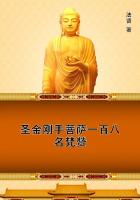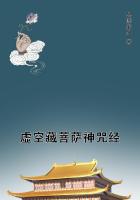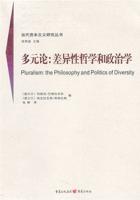In the midst of modern society, broken up by innumerable prejudices, the mind is in a constant turmoil of agitation. It is incessantly revolving in itself a thousand tumultuous and contradictory opinions, by which the members of an ambitious and miserable circle seek to raise themselves above each other. But in solitude the soul lays aside the morbid illusions which troubled her, and resumes the pure consciousness of herself, of nature, and of its Author, as the muddy water of a torrent which has ravaged the plains, coming to rest, and diffusing itself over some low grounds out of its course, deposits there the slime it has taken up, and, resuming its wonted transparency, reflects, with its own shores, the verdure of the earth and the light of heaven. Thus does solitude recruit the powers of the body as well as those of the mind. It is among hermits that are found the men who carry human existence to its extreme limits; such are the Bramins of India. In brief, I consider solitude so necessary to happiness, even in the world itself, that it appears to me impossible to derive lasting pleasure from any pursuit whatever, or to regulate our conduct by any pursuit whatever, or to regulate our conduct by any stable principle, if we do not create for ourselves a mental void, whence our own views rarely emerge, and into which the opinions of others never enter. I do not mean to say that man ought to live absolutely alone; he is connected by his necessities with all mankind; his labours are due to man: and he owes something too to the rest of nature. But, as God has given to each of us organs perfectly adapted to the elements of the globe on which we live,--feet for the soil, lungs for the air, eyes for the light, without the power of changing the use of any of these faculties, he has reserved for himself, as the Author of life, that which is its chief organ,--the heart.
I thus passed my days far from mankind, whom I wished to serve, and by whom I have been persecuted. After having travelled over many countries of Europe, and some parts of America and Africa, I at length pitched my tent in this thinly-peopled island, allured by its mild climate and its solitudes. A cottage which I built in the woods, at the foot of a tree, a little field which I cleared with my own hands, a river which glides before my door, suffice for my wants and for my pleasures. I blend with these enjoyments the perusal of some chosen books, which teach me to become better. They make that world, which I have abandoned, still contribute something to my happiness. They lay before me pictures of those passions which render its inhabitants so miserable; and in the comparison I am thus led to make between their lot and my own, I feel a kind of negative enjoyment. Like a man saved from shipwreck, and thrown upon a rock, I contemplate, from my solitude, the storms which rage through the rest of the world; and my repose seems more profound from the distant sound of the tempest. As men have ceased to fall in my way, I no longer view them with aversion; I only pity them. If I sometimes fall in with an unfortunate being, I try to help him by my counsels, as a passer-by on the brink of a torrent extends his hand to save a wretch from drowning. But I have hardly ever found any but the innocent attentive to my voice.
Nature calls the majority of men to her in vain. Each of them forms an image of her for himself, and invests her with his own passions. He pursues during the whole of his life this vain phantom, which leads him astray; and he afterwards complains to Heaven of the misfortunes which he has thus created for himself. Among the many children of misfortune whom I have endeavoured to lead back to the enjoyments of nature, I have not found one but was intoxicated with his own miseries. They have listened to me at first with attention, in the hope that I could teach them how to acquire glory or fortune, but when they found that I only wished to instruct them how to dispense with these chimeras, their attention has been converted into pity, because I did not prize their miserable happiness. They blamed my solitary life; they alleged that they alone were useful to men, and they endeavoured to draw me into their vortex. But if I communicate with all, I lay myself open to none. It is often sufficient for me to serve as a lesson to myself. In my present tranquillity, I pass in review the agitating pursuits of my past life, to which I formerly attached so much value,--patronage, fortune, reputation, pleasure, and the opinions which are ever at strife over all the earth. I compare the men whom I have seen disputing furiously over these vanities, and who are no more, to the tiny waves of my rivulet, which break in foam against its rocky bed, and disappear, never to return. As for me, I suffer myself to float calmly down the stream of time to the shoreless ocean of futurity; while, in the contemplation of the present harmony of nature, I elevate my soul towards its supreme Author, and hope for a more happy lot in another state of existence.















